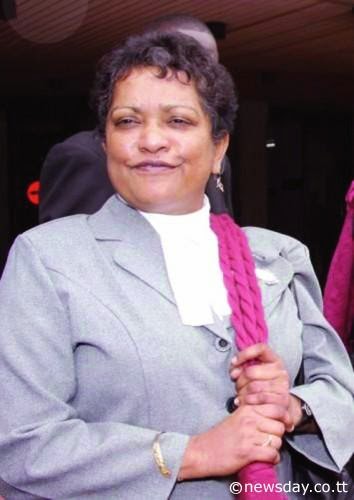Crime, desperation, and political responsibility in Barbados
One Caribbean Nation.
By Ralph Jemmott
The Democratic Labour Party’s Report on Crime, a 146- page document, has been published. It reflects the work of a 12-member commission chaired by Ms Verla DePeiza that was established to examine what appears to be a rising tide of criminality in Barbados.
The DLP is to be commended for its efforts. The document itself is entitled A Blueprint to Rescue a Nation. Creeping old age and the fact of being ‘in town long’ have tended to make one sceptical of so-called ‘blueprints.’ This is particularly so when it comes to documents that propose to be able to ‘rescue’ an entire nation.’ Certainly, Barbados, like much of the region, is in need of change to alter the tendency to gun-running, crime—both blue and white collar—, social disorder, drug abuse, and family breakdown with all its attendant consequences. Someone stated recently that in today’s world, there is no guarantee of the success of anything.
One aspect of the commission’s findings highlights the decline of trust. Social trust—the presence of active and widely shared values—is a key ingredient in binding societies together. When trust declines, the idea of a whole-of-society approach becomes little more than farcical political posturing.
The much-publicised notion that if Barbadians see something, they should say something is the greatest hoax ever perpetuated on unsuspecting people. Of course, like so much else, it sounds good, but in the current circumstances, how realistic is it? In examining the crime situation in Barbados, Commission Chairman DePeiza indicated how difficult it was to get ordinary Barbadians to speak out. The realistic fear was that personal identities might be exposed and that there could be recriminatory responses from criminal elements in the society.
The fear is that the State has already lost control of the crime situation in that the police are struggling to contain social disorder ranging from financial fraud to praedial grand larceny to indiscipline on our roads and illegal dumping in our gullies.
Generally speaking, The Barbados Police Force appears to be doing an adequate job in catching the offenders, but there is just too much crime, and as the Attorney General stated in the House of Assembly on Friday, August 8, 2025, the criminal element has become very sophisticated.
The paramount concern is that the judiciary is too hard pressed to hand down judgments on time because there is just too much crime in a society that, to be truthful, has been experiencing widespread deviance for some time. In this regard, both political parties that have formed the government of Barbados have been at fault.
In response to the DLP’s document, the government and its main spokesperson have chosen to see it as reflecting the ‘petulance’ of the Opposition Leader. There seems to be enough adolescent petulance to go around. The present government falls back on the excuse that it takes a whole-of-society approach to turn around social deviance.
On the surface, that may be quite true, but who has the ultimate responsibility for enforcing the law? Government. And that is where all governments have fallen down. Why, under both parties, has the ZR culture gone unchecked for four decades running? A caller on Brass Tacks who asked to be let off a van stated that the music was not only too loud but, in her words, too raw.
Some years ago, the late Ralph Boyce asked in public: If people in certain areas know where the drug houses are, how come the police don’t know? There used to be a sign at the airport telling visitors that Barbados did not have a drug problem and that they should not give us one. Now, we not only have a drug problem, but we also have a drug culture where people smoke marijuana openly. Who dropped the ball? The current BLP government appointed a Committee on Crime, but the chairperson, a serious woman, quickly resigned, claiming, among other things, that the body was cumbersome and lacked the secretariat needed to carry out its lofty mission.
Are we serious about ‘transformation’ or are we immersing ourselves in a warm bath of elite political like-mindedness rather than a cold shower of the reality of the lived experience of those removed from the circles of power? The DLP document indicts the government for failing to supply adequate social support, and offering limited access to education, housing, welfare and probation services. Prime Minister Owen Arthur once noted that Barbados had developed a fairly extensive welfare system, and he noted then that the problem was the financial ability to maintain it. The late Sir Frank Alleyne said very much the same thing.
No government in Barbados has an inexhaustible reservoir of economic resources to supply all the needs of everyone in the society. Poverty persists. Verla DePeiza, in her interview with Barbados TODAY, noted the kind of genuine penury that often leads to crime. She told this publication: “Imagine your rent is due, children are hungry, there is no help in sight. Certain categories of people are likely to turn to criminal activities, especially those of an acquisitive nature, like theft, burglary, or fraud and this is usually a function of desperation.”
Will an elected DLP be able to end generational poverty? But good luck with your ‘blueprint’. At least it might provoke meaningful discussion.
Ralph Jemmott is a respected, retired educator and commentator on social issues.
From Barbados Today. Thursday,14th., August 2014



Comments